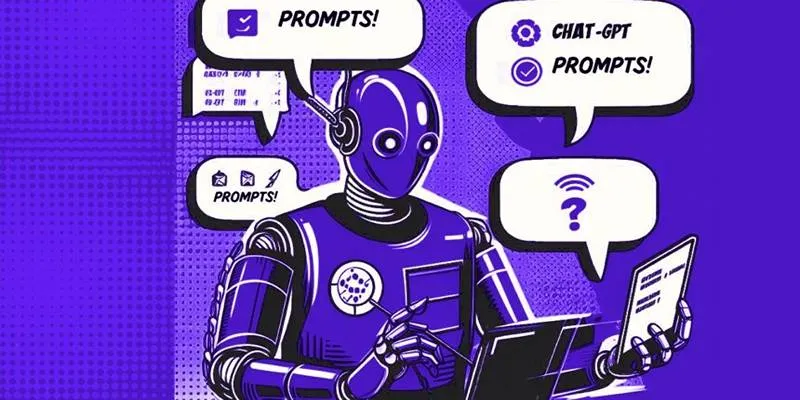For years, businesses have struggled with significant gaps in customer service, including long wait times, repetitive queries, agent burnout, and customer dissatisfaction. These issues often create barriers between brands and their customers. Today, artificial intelligence (AI) is revolutionizing how businesses manage customer interactions.
By automating routine tasks, speeding up responses, and delivering personalized support, AI is bridging these gaps and transforming customer service from frustrating to fantastic. This transformation is not just a trend; it’s a shift towards smarter and more human-centered service experiences , driven by technology but guided by strategy.
The Service Gaps That Held Businesses Back
Before the advent of artificial intelligence, customer service relied heavily on human agents working set hours, making it challenging to meet evolving customer needs. Many businesses encountered numerous issues, such as:
- High volumes of calls and messages that agents couldn’t handle efficiently
- Inconsistent service quality due to varying agent experience and training
- Slow resolution times for even simple questions
- Lack of personalization, leaving customers feeling unheard
- Limited availability, especially outside regular business hours
These gaps didn’t just affect operations—they led to frustrated customers, negative reviews, and missed opportunities for retention.
AI’s Role in Transforming Customer Service
AI technology has emerged as a reliable solution to these long-standing issues. By automating certain tasks and assisting human agents, AI bridges service gaps and enhances the overall customer journey. Its applications in customer support have grown significantly in recent years, becoming more accessible and effective.
24/7 Support Availability

One of the most noticeable improvements AI brings is round-the-clock support. AI-powered chatbots and virtual assistants provide immediate answers, regardless of time zone or business hours.
- Customers can access help instantly.
- Businesses don’t need to rely on night shifts or extra staffing
- Simple queries get resolved without delay
This kind of availability not only boosts satisfaction but also builds trust.
Key Benefits of AI in Customer Service
When applied thoughtfully, AI offers measurable value to businesses and end- users alike.
Faster Response Times
Speed is a top priority for customers. AI enables faster answers by:
- Scanning customer intent in real-time
- Pulling from knowledge bases instantly
- Eliminating wait queues for standard questions
Customers get help quickly, and agents focus only on complex tasks.
Smarter Ticket Management
AI doesn’t just respond—it organizes. Intelligent ticketing systems use AI to categorize, prioritize, and route issues to the correct teams. This improves internal workflows and ensures that customer concerns land in the right hands.
- Urgent queries get immediate attention.
- Departments don’t waste time reassigning tickets.
- Agents become more productive with clear priorities.
Personalized Interactions at Scale
Through data analysis, AI can tailor responses based on customer history, behavior, and preferences. Even when dealing with thousands of customers, businesses can still create a personalized touch.
For example, an AI assistant might recommend solutions or products based on:
- Previous purchases
- Past support issues
- Current browsing patterns
This relevance adds value to the interaction and makes customers feel recognized.
Supporting Human Agents, Not Replacing Them
Despite common fears, AI is not here to take over human jobs—it’s here to support them. AI allows agents to work more effectively by handling the repetitive, time-consuming parts of their role.
Suggested Responses
AI tools can suggest accurate replies while an agent is chatting with a customer, reducing typing time and ensuring consistency in tone and information.
Knowledge Access
Instead of manually searching for answers in bulky databases, agents can rely on AI to instantly find and present relevant content.
Real-World Use Cases: How Businesses Apply AI Today
Across industries, companies are applying AI in creative and helpful ways:
- E-commerce platforms use AI chatbots to track orders and handle returns
- Banks deploy virtual assistants to manage balance inquiries and loan FAQs
- Telecom companies use AI to troubleshoot common tech issues before sending them to technical agents
- Healthcare providers implement AI tools for appointment booking and insurance questions
Each use case targets specific service gaps, improving accuracy, speed, and experience.
Challenges and Considerations in AI Adoption
While the benefits are clear, businesses must also address challenges to ensure a smooth transition.
Data Privacy and Ethics

AI relies on data to function effectively. Companies must use customer information responsibly and comply with privacy laws such as GDPR and CCPA.
- Be transparent about how AI is used
- Store data securely
- Allow customers to opt-out of automated services if they prefer
Human Handoff Options
No AI system can handle every situation. Complex or emotional issues should always have a clear path to a human agent.
- Offer a “Talk to an agent” option at every stage
- Train AI to detect when escalation is needed
Balancing automation with human empathy is key.
Steps to Implement AI-Powered Customer Service
Businesses looking to close service gaps with AI should consider the following practical steps:
- Start with a chatbot to handle FAQs and common requests
- Use AI to triage tickets, speeding up backend operations
- Train staff to work alongside AI tools and understand their capabilities
- Track metrics like resolution time, customer satisfaction, and ticket volume
Gradual implementation allows businesses to learn and grow without overwhelming teams or customers.
Conclusion
In conclusion, AI is no longer a future concept—it’s a present-day solution that’s transforming customer service from the ground up. By filling the gaps left by traditional methods, AI helps businesses respond faster, operate smarter, and serve customers better. It empowers support teams by reducing repetitive tasks and allows them to focus on more meaningful interactions. With AI, companies can provide 24/7 service, personalize customer experiences, and handle growing demands efficiently.
 zfn9
zfn9























